Uncovering the mysterious downfall of heaven's most radiant beings, the fallen angels, reveals a cautionary tale of pride, power, and eternal consequences.
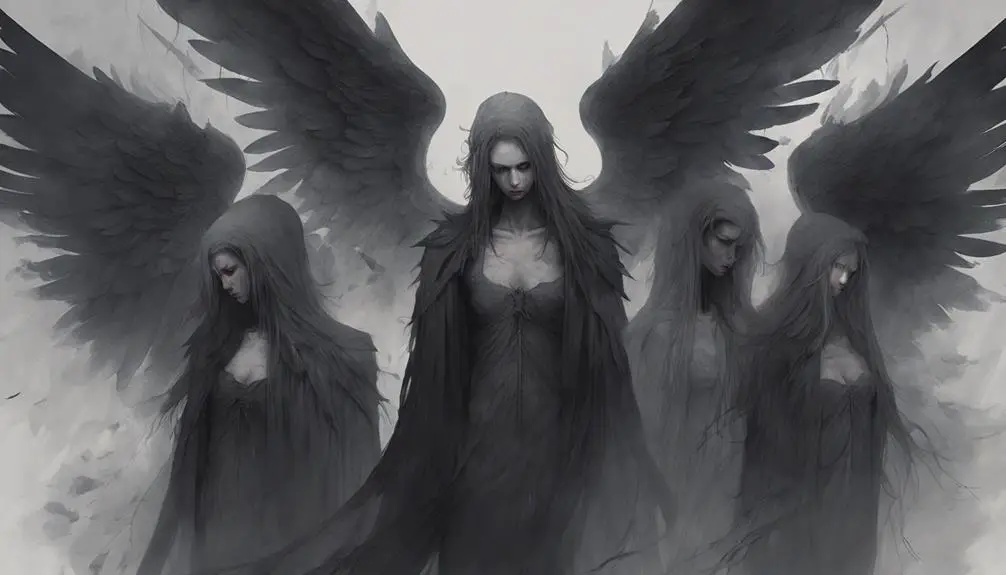
Who Were the Fallen Angels in the Bible
As the ancient Greek myth of Phaethon's hubris comes to mind, you might wonder if the fallen angels in the Bible suffered a similar fate. Like Phaethon, who dared to drive the chariot of the sun, these celestial beings once shone bright in heaven. But what drove them to rebel against the divine will, abandoning their glorious stations for an eternal existence of darkness and despair? The answers, hidden within the biblical narrative, await your discovery.
The Rebellion in Heaven
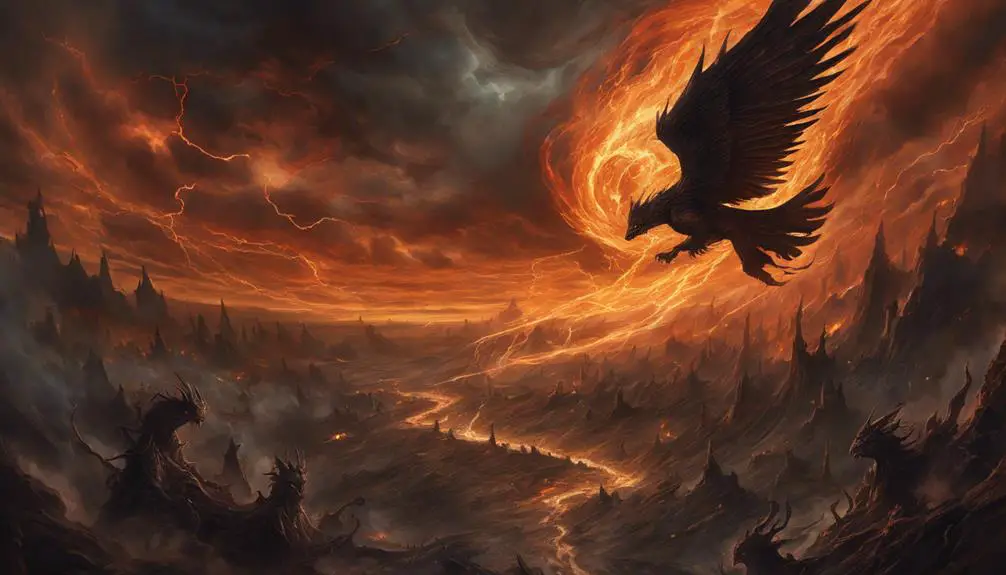
As you explore the biblical account of the fallen angels, it becomes apparent that the rebellion in heaven, sparked by pride and ambition, marked the initial descent of these celestial beings into darkness and sin. This Heavenly Uprising, a Divine Betrayal of the highest order, would have far-reaching consequences, shaping the trajectory of human history. You'll discover that the Bible doesn't provide a detailed account of the event, but rather scattered references that, when investigated thoroughly, reveal a narrative of cosmic rebellion. Isaiah 14:12-15 and Ezekiel 28:12-19 offer glimpses into the motivations behind the fallen angels' actions, highlighting the corrupting influence of pride and the desire for autonomy. As you probe deeper, you'll find that the rebellion in heaven serves as a cautionary tale, underscoring the dangers of unchecked ambition and the devastating consequences of opposing the divine will. By examining this pivotal event, you'll gain a deeper understanding of the fallen angels' role in the biblical narrative and the enduring legacy of their Divine Betrayal.
Lucifer's Followers Identified
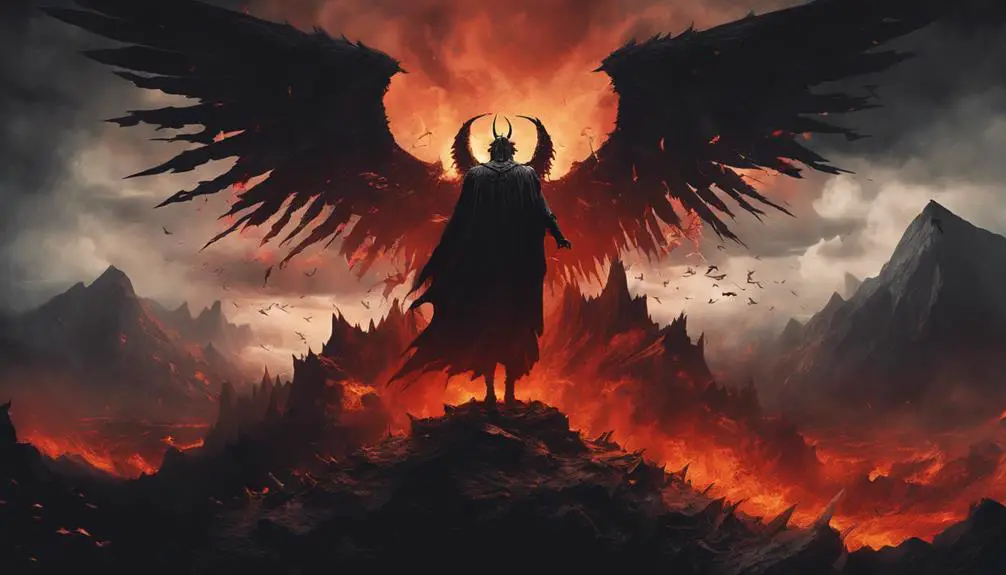
What constitutes the ranks of Lucifer's followers, and how do the biblical accounts help identify the fallen angels who participated in the heavenly rebellion? As you explore the scriptural narrative, it becomes apparent that Lucifer's followers were comprised of a vast array of heavenly traitors who defected from their divine posts. These dark entities, collectively referred to as the Dark Legion, were not simply mindless minions, but rather, they were powerful, sentient beings who willfully chose to abandon their sacred duties.
The biblical accounts, particularly in the book of Revelation, provide valuable insights into the identities of these fallen angels. For instance, the four horsemen of the Apocalypse, often symbolizing Conquest, War, Famine, and Death, are believed by some scholars to be former angelic beings who defected to Lucifer's camp. Similarly, the fallen angel Abaddon, also known as the Destroyer, is mentioned in the book of Revelation as a leader among the Dark Legion. As you continue to examine the biblical narrative, you'll discover that the ranks of Lucifer's followers were comprised of a diverse range of heavenly traitors, each with their unique roles and responsibilities in the heavenly rebellion.
Angelic Hierarchy and Ranks
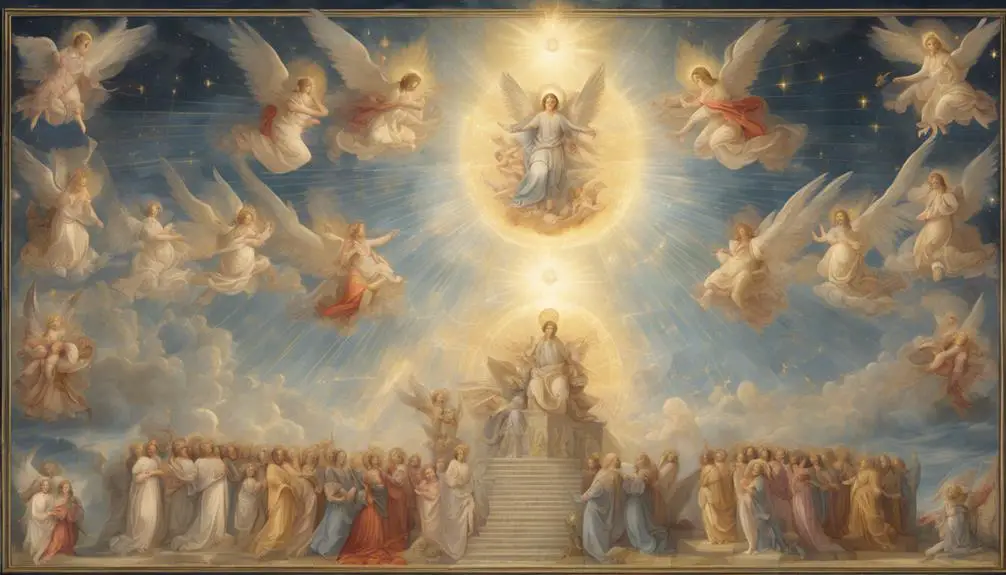
Within the heavenly domain, you'll find that Lucifer's followers were organized into a complex hierarchy, comprising various ranks and orders of fallen angels, each with distinct responsibilities and spheres of influence. This hierarchical structure was a reflection of the heavenly governance, where divine delegation of authority and power was evident. As you explore further, you'll discover that the fallen angels were categorized into different choirs, with each choir having its own unique role in the heavenly governance. The highest ranking fallen angels, often referred to as the 'princes of heaven,' held significant power and influence, overseeing various aspects of heavenly governance. Beneath them were the 'lords of heaven,' who managed specific domains and territories. Further down the hierarchy were the 'ministering spirits,' responsible for carrying out tasks and errands on behalf of the higher-ranking fallen angels. This intricate system of heavenly governance and divine delegation underscores the complexity and organization of Lucifer's followers.
Reasons Behind the Fall
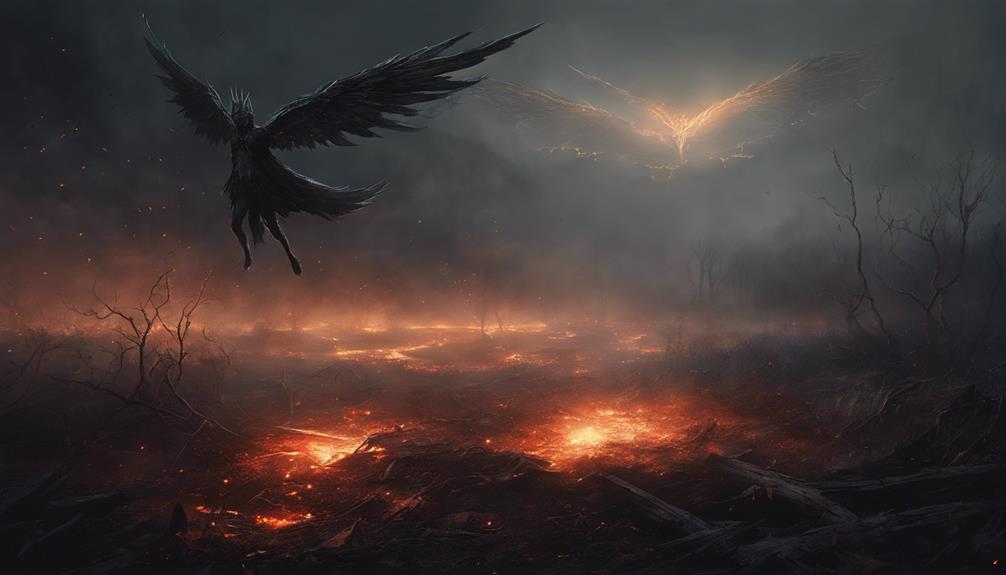
Your exploration of the fallen angels' motivations begins with the fundamental question: what drove Lucifer's followers to rebel against the divine authority, and you'll discover that their investigation into the fallen angels' motivations begins with the fundamental question: what drove Lucifer's followers to rebel against the divine authority, and you'll discover that their descent into darkness was rooted in a complex interplay of pride, ambition, and a deep-seated desire for autonomy.
As you probe deeper, you'll find that three primary factors contributed to their downfall:
- Spiritual Pride: Lucifer and his cohorts began to perceive themselves as equals to God, sparking a sense of self-importance that ultimately led to their demise.
- Ambition for Power: Driven by a desire for greater authority and control, they sought to usurp God's throne, ignoring the limits of their created nature.
- Misuse of Free Will: The fallen angels' abuse of their God-given free will allowed them to choose rebellion over obedience, perpetuating a cycle of sin and disobedience.
These factors converged to create a toxic mix of arrogance, entitlement, and discontent, ultimately leading to the fallen angels' expulsion from heaven. As you continue to explore the complexities of their motivations, you'll gain a deeper understanding of the intricate web of causes behind their fall.
Consequences of Their Rebellion
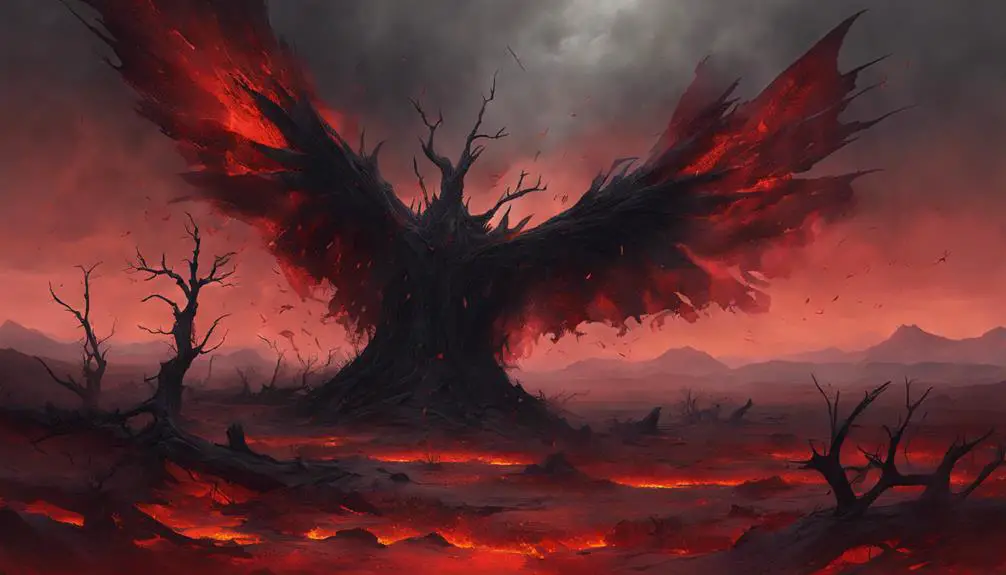
As the fallen angels' rebellion unfolded, they suffered a cataclysmic downfall, precipitating a profound reshaping of their essence, and you're left to ponder the far-reaching implications of their insurrection. Their once-luminous forms were now shrouded in darkness, stripped of their former glory, and banished from the divine domain. The consequences of their rebellion were severe, as they were condemned to eternal punishment, a fate that would haunt them for eternity. This punishment was a manifestation of divine justice, a demonstration of God's unwavering commitment to righteousness and order. You can't help but wonder if the fallen angels ever considered the gravity of their actions, if they realized that their rebellion would seal their fate forever. As you explore further into the consequences of their actions, you begin to grasp the gravity of their mistake, and the solemnity of their eternal sentence.
Lessons From the Fallen Ones
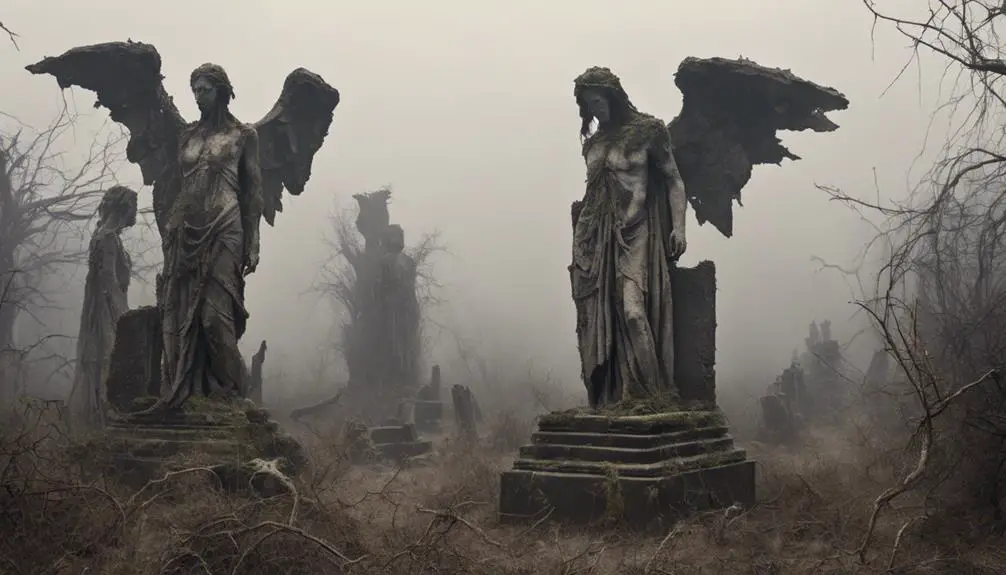
You're left to ponder what wisdom can be gleaned from the cautionary tale of the fallen angels, whose catastrophic mistake serves as a stark reminder of the perils of pride and the importance of humility. As you investigate further into their story, you begin to uncover valuable lessons that can be applied to your own spiritual journey.
Here are three key takeaways from the fallen ones:
- Free will exploration: The fallen angels' rebellion highlights the significance of free will exploration. Their decision to disobey God's command reveals the complexities of moral agency and the consequences of unchecked power.
- Divine judgment critique: The fallen angels' fate serves as a critique of Divine judgment, prompting you to question the nature of justice and the morality of punishment. This critique invites you to reexamine your understanding of God's character and the role of judgment in the divine economy.
- Humility in the face of power: The fallen angels' downfall demonstrates the dangers of unchecked ambition and the importance of humility in the face of power. Their story cautions against the corrupting influence of power and the importance of remaining humble in the presence of divine authority.



Sign up